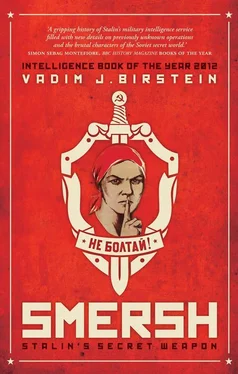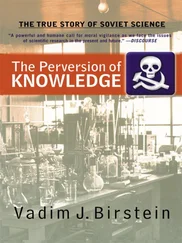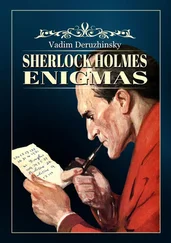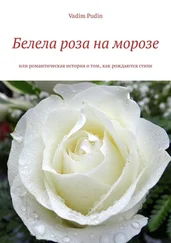Putin has ordered textbooks rewritten. One of them called Stalin ‘one of the most successful USSR leaders’ and used the euphemism ‘Stalin’s psychological peculiarities’ to describe Stalin’s mass repressions. 42The intensive pro-Stalin propaganda has already resulted in the brainwashing of the Russian younger generation. In a poll conducted in October 2009, more than half of respondents over 55, and more than a quarter of 18-to 24-year-olds, said that they felt positively about Stalin. 43
The current Chekist attempts to whitewash Stalin and his methods must be strongly rebuffed. I hope the present book will help ensure that the atrocities of Stalin’s regime will not be forgotten.
For me, the topic of World War II has a personal dimension as well. While researching material for the chapter about the International Nuremberg Trial, I found out that the name of my great-uncle, Dr. Meer D. Birstein, was on a list of victims killed by the Nazis in 1941–42, which was presented by the Soviet Prosecutor Lev Smirnov on February 26, 1946 (Exhibit USSR 279). 44My great-uncle was a surgeon at a hospital in the town of Vyazma, and he chose to stay with his patients despite the rapid German advance and his own awareness of the German attitude toward Jews.
Also, like everyone born in Moscow during that war, in my childhood I heard stories about the disastrous year 1941, when the Soviet leadership was not prepared for the German advance and about the panic in Moscow on 16 October 1941, when German tanks showed up in Moscow’s suburbs. My mother, a doctor who was promoted in 1941 to the rank of Captain of Medical Service, served in a military field hospital from June 1941 until the end of 1943, and witnessed many horrifying events. For thousands of civilian volunteers called opolchentsy sent out to defend Moscow, there was only one rifle for every three soldiers. 45In Leningrad there was only one rifle per thirty volunteers, and there were no munitions. Soviet pilots dropped scrap metal during the night instead of bombs, hoping at least to disturb the Germans’ sleep. Since practically all modern planes had been destroyed by the Germans, pilots used old two-man planes made of plywood. The number of Soviet defenders killed during that period, among them many of my parents’ friends, is simply unknown. Even more horrifying were stories about the everyday life of servicemen at the front later—arrests of officers by osobisty for no discernible reason, punishment battalion ( shtrafbat ) attacks through minefields, and so forth.
The poverty of most of my classmates in the early 1950s was profound. Many were raised by mothers because their fathers had been killed during the war or were imprisoned in the GULAG. And I cannot forget the thousands of human stumps—young men who had lost their legs and sometimes also one or both hands—who were seen after the war in the streets everywhere throughout the country. They had wooden discs instead of legs and they moved by propelling themselves with their hands (if they had them). Many of these ‘stumps’ had the highest military awards attached to their chests, and most of them begged for money. Their pension was 150 rubles a month, at a time when a loaf of bread cost 100 rubles at the market.
In July 1951, these people disappeared from the streets of Moscow. Following a secret decree, the militia (Soviet police) collected them and placed them in specially organized invalid reservations under squalid conditions, and the government reduced their pensions. 46From time to time you would see an escapee from one of the reservations, singing patriotic war songs on a suburban train and begging for money.
All these memories will remain with me for the rest of my life.
One more issue is haunting me: the enormous scale of atrocities committed by Soviet soldiers in Eastern Europe and China in 1944–45. This topic was taboo during all the Soviet years, and many of Russia’s official historians and nationalists are still furiously denying the facts. 47But I personally knew two Red Army officers who tried to stop rapes and reported to their superiors about the atrocities they had witnessed. Both were punished for ‘slandering the Red Army’ and spent years in the GULAG. However, the scale of the atrocities, especially in Hungary and Germany, became clear only from recent publications in Russian. 48It is scary that even now, 65 years after the war, according to the interviews on the website http://www.iremember.ru, many war veterans recall the atrocities without remorse and consider the mass rapes of women and killings of children and old people to be justified by the atrocities the German troops committed in the Soviet territory in 1941–42.
I would like to end with a citation from the very thoughtful memoirs by Nikolai Nikoulin, a war veteran who became a prominent, internationally known art historian at the Leningrad Hermitage. In November 1941 Nikoulin volunteered for the army, just after he graduated from high school in Leningrad. He wrote his memoirs in the 1970s, not even hoping that they would ever appear in print; they were published in 2008. As he states in the introduction, the memoirs were written ‘from the point of view of a soldier who is crawling through the mud of the front lines’. Nikoulin was very strong in accusing the Soviet regime of an inhuman attitude toward its own people:
The war especially strongly exposed the meanness of the Bolshevik government…
An order comes from above: ‘You must seize a certain height.’ The regiment storms it week after week, each day losing a large number of men. The replacements for casualties keep coming without interruption; there is no shortage of men. Among them there are men swollen with dystrophy from Leningrad [in the Nazi blockade], for whom doctors had just prescribed intensive feeding and staying in bed for three weeks; there are also 14-year-old kids… who should not have been drafted at all…
The only command is ‘Forward!!!’ Finally, a soldier or a lieutenant—a platoon commander—or even, infrequently, a captain—a company commander—says, while witnessing this outrageous nonsense: ‘Stop wasting the men! There is a concrete-enforced pillbox on the top! And we have only the 76-mm cannon! It cannot destroy it!!!’
Immediately a politruk [political officer], a SMERSH officer, and a military tribunal start to work. One of the informers, plenty of whom are present in every unit, testifies: ‘Yes, in the presence of privates he [the officer] questioned our victory!’ After this a special printed form, where there is a space for a name, is filled in. Now everything is ready. The decision is: ‘Shoot him in front of formation!’ or ‘Send him to a punishment company!’—which is practically the same thing.
This is how the most honest and responsible people perished…
It was a stupid, senseless killing of our own servicemen. I think this [artificial] selection among the Russian people is a time bomb that will explode in a few generations, in the 21st or 22nd century, when the numerous scoundrels selected and raised by the Bolsheviks will give rise to new generations of those who are like them. 49
Nikoulin died in 2009. Unfortunately, he lived to see his prediction coming true in the twenty-first century.
For me, writing this book was like talking to the people of my parents’ generation, such as Nikolai Nikoulin, Vasil’ Bykov, and many, many others. Our ‘conversations’ were very painful, and like my harrowing postwar memories, they will stay with me forever.
1. SMERSH. Istoricheskie ocherki i dokumenty , edited by V. S. Khristoforov, et al. (Moscow: Glavnoe arkhivnoe upravlenie, 2003; second edition 2005; and the third, 2010) (in Russian).
2. The number of divisions from Table 51 in G. F. Krivosheev et al., Velikaya Otechestvennaya bez grifa sekretnosti. Kniga poter’ (Moscow: Veche, 2009), 206–7 (in Russian).
Читать дальше












